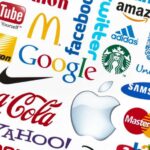Everyone has an opinion when it comes to branding. Over the course of my career, first as a client-side marketing executive, then as a revenue-growth consultant to B2B companies, I’ve had the opportunity to participate in dozens of major branding projects (e.g. what to name a company or division) and many more minor branding projects (e.g. what to name a new or revised product). Often, the question comes up as to whether the company name/brand should be distinctive (unique) or descriptive (explains what you do).
There are definitely strong opinions about this. Dale Partridge, the founder of Startupcamp.com, made the observation that when it comes to branding, distinctiveness is more important than descriptiveness. Partridge talks about UBER as a great example, saying the founders chose a great name instead of something like XYZ Taxi Company. While I agree with Mr. Patridge’s point about the name UBER, his advice is appropriate for some companies, not all companies. Let’s explore this further.
Let’s start with the branding principles I shared in our white paper, Six Steps to Achieve Powerful Brand Awareness. Ideally, your B2B branding should:
- differentiate you.
- offer a clear and compelling benefit.
- be as specific as possible.
- be easily understood.
- be congruent.
- be jealously guarded.
Related Video: Low-Cost Branding Awareness Ideas
I believe that all of these principles describe characteristics of descriptive brands and most of them apply to distinctive brands. The challenge is that when it comes to names and brand promises, space is very limited and you have to get your point across quickly. The ten richest companies in the U.S. have a mix of descriptive brands (Ford Motor Company), distinctive brands (Citigroup) and hybrids (Microsoft). Here are some thoughts on both approaches, plus the hybrid approach (descriptive + distinctive).
Distinctive Brands
A distinctive brand can be unique, cool, hip and fun when used in a particular market. Also, the distinctive name is usually highly memorable even when it isn’t related to the product or service. The name UBER has nothing to do with transportation, the name Apple has nothing to do with smartphones or computers, Amazon has nothing to do with the rain forest, Google is not related to internet search and Nike is only tangentially related to sneakers and athletic apparel – the name comes from the Greek goddess of speed, victory and strength. Xerox is an invented name and was so successful; the name became synonymous with the act of copying.
Whereas a purely descriptive name can’t be trademarked, distinctive names can be. This can be a major advantage. Even if you got a descriptive name approved during the trademark process, it may be challenged in court –something you don’t want to deal with. Plus, unlike a descriptive brand, a distinctive name can accommodate a change in business or product strategy.
One major caveat: distinctive brands that become well known do so not necessarily because of the great name, but rather because they have the budget and marketing savvy to create lots of brand awareness. Market timing can also be a factor – early entrants with strong financial backing have a huge advantage.
Descriptive Brands
If you are a smaller company, with a limited budget, you may not have the financial clout to make a distinctive brand stick. In this case, by all means, use a descriptive name. For example, if you are a small IT services provider in Boise, Idaho – “Boise IT Services” would be a much better name than something like “Apollo Group”. A local company searching for an IT services provider will not only quickly find you, but also get the point about what you do. This can be a big advantage over your competitors who name their company after their pet or something equally ambiguous.
Salesforce.com is a great example of a descriptive B2B brand. You get the gist of what they do in the name itself and if you are leading or part of a sales force, you will be curious about what the company offers. Likewise, in the financial industry, the name E-Trade gives you a good idea of what the company does.
Interestingly, brands can morph over time from descriptive to distinctive. For example, Apple began life as Apple Computers, IBM as International Business Machines and Exxon Mobil started (in 1870) as Standard Oil Company. Boeing, named after its founder, William Boeing, started life as Boeing Aircraft Company. Once you grow to a certain size (and expand your market footprint), you can switch to the purely distinctive name.
Note that these companies were launched as semi-descriptive (hybrid) brands, with a distinctive beginning (Apple) and descriptive ending (Computers). WalMart is a good example of a hybrid brand, incorporating the word “Mart” to describe what they do and “Wal” to tie the brand to the founder’s last name (Walton). AirBNB is another good hybrid brand. And, the individual who suggested renaming Quantum Computer Services to America Online should receive a branding medal.
Branding Lessons Learned:
- Why settle for just one great attribute? If you can, make your B2B brand both descriptive and distinctive.
- Don’t have a preconceived notion about how you will structure your brand. Good branding starts with a spirit of openness and creativity, not a prescribed list of narrow rules.
- When you have a distinctive company name, make sure the product names are highly descriptive. When I ran marketing for Group 1 Software (non-descriptive name), we used product names that described exactly what the software did, e.g. Duplicate Elimination, Postal Presort.
- Never use a name that is ambiguous or hard to pronounce. I knew a software company CEO who named his company after a French word that not even most French people would recognize. He stated that prospects would be so intrigued by the name they would look it up and thereby learn more about his company. Not exactly true since the company is now out of business.
- Thoroughly research your chosen name (plus tagline) to make sure there are not there are no potential legal entanglements. Yes, do this early in the process and have a backup plan.
- Brand for the future. You want your brand to be congruent with who you are as a company, so It’s good that you build your brand around exactly what you offer the marketplace today. However, I doubt that you intend to remain static so make sure your naming convention resonates with where you believe you are going to be in five, ten, or more years.
The decision to create distinctive or descriptive B2B branding can have a large impact on your brand awareness and bottom line. Best of success as you follow the above guidelines.
Guest post by: Christopher Ryan CEO or Fusion Marketing Partners and Center for Business Modeling.












